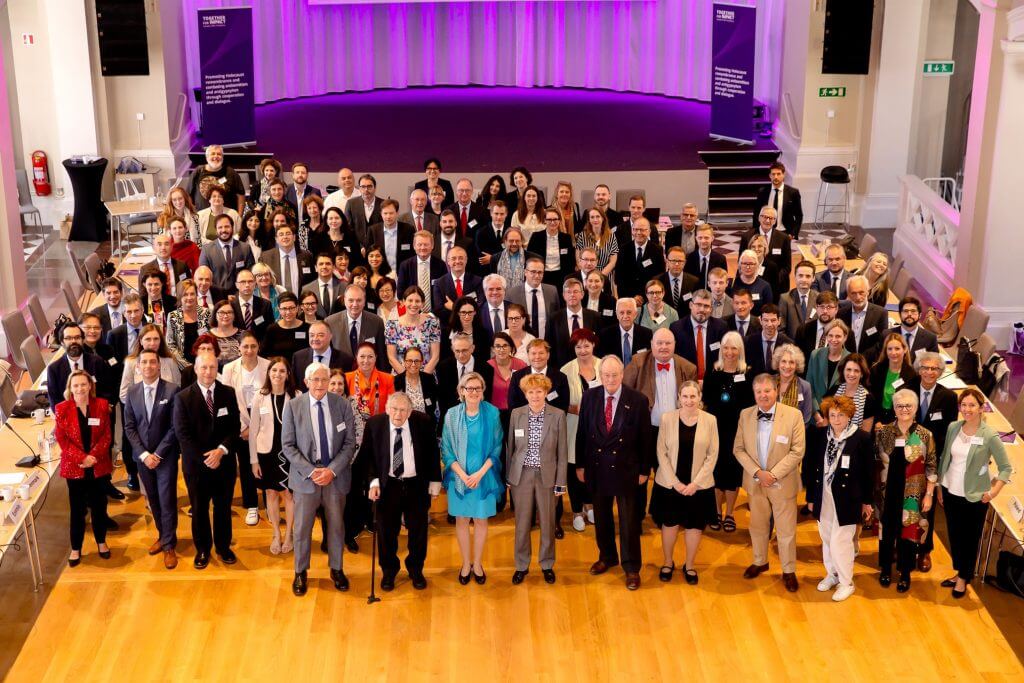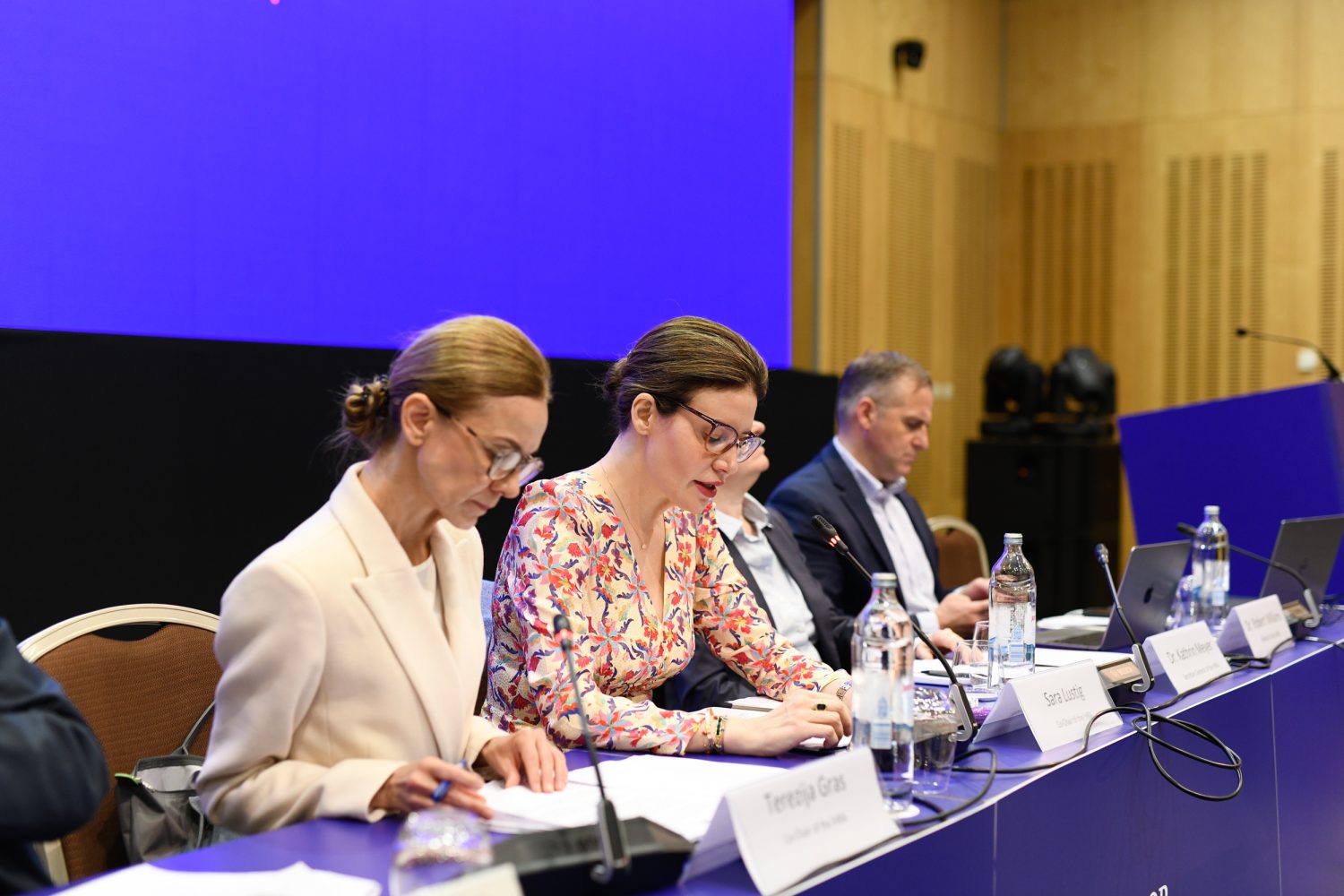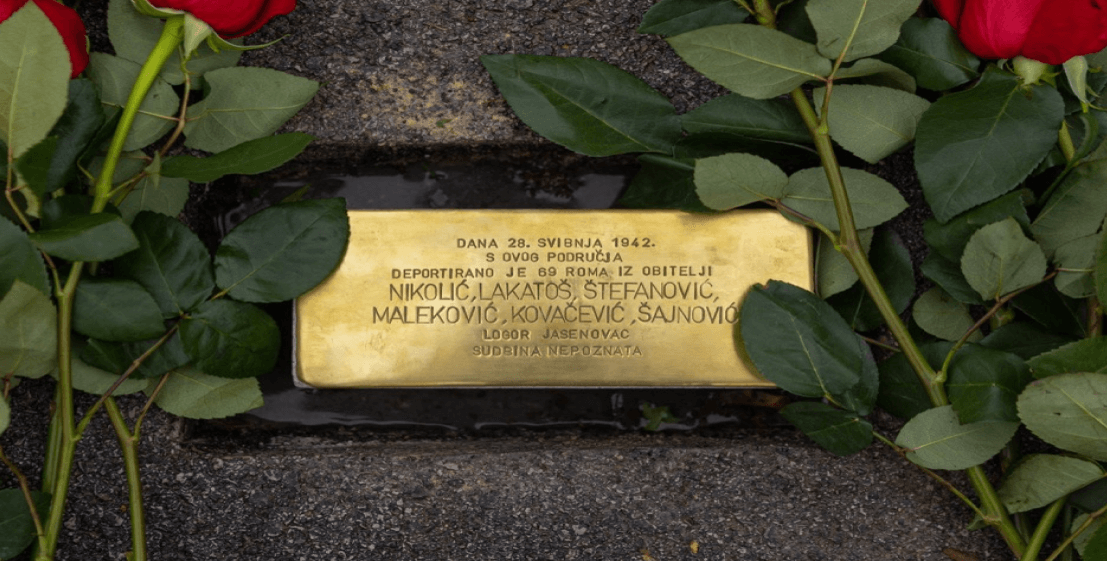
The future of remembrance
Q&A with IHRA Co-Chairs Terezija Gras and Sara Lustig on the Croatian Presidency
The Croatian IHRA Presidency began on 1 March 2023. In this Q&A, IHRA Co-Chairs Terezija Gras and Sara Lustig share their motivations and hopes for the year ahead.
Let’s begin by considering your personal motivations for becoming IHRA Co-Chairs. What path has led you both to this position?
Terezija Gras: Not only did I personally experience the war in Croatia during the ‘90s, but I was also working in Brussels at the time of the Jewish Museum bombing in 2014, and two other terrorist attacks in the city in 2016. These personal experiences made me question why war and atrocities still happen.
Studying German literature and history and working as a diplomat on Croatia’s European integration have equipped me with a good understanding of the impact of the history of the Holocaust. With this knowledge, it is terrifying to see the resurgence of antisemitism, hatred, historical revisionism, and the return to war in Europe. It shows that the world has not yet drawn the right lessons from the past.
I feel privileged as a newcomer to the IHRA to take this position along with Sara at this crucial moment to contribute to accurate Holocaust remembrance.
Sara Lustig: This position is key to the legacy of my own personal story. Being able to help shape the future of remembrance at a time when the remaining Holocaust survivors leave us is particularly important to me, not only as the youngest IHRA Chair, but also as the first second generation descendant of Holocaust survivors to take this position. It is an obligation I have not just to my family, but to countless survivors who were my teachers and mentors. I owe this to them! I thank the IHRA and the Prime Minister of Croatia for empowering someone with my background to come into this position.
For descendants of Holocaust survivors, Holocaust remembrance is an everyday effort and the stories of survivors have shaped our lives. I am driven by the notion that the survivors are our primary facts, whose collective truth will always counter Holocaust denial and distortion. As we lose the survivor generation, who went to great lengths to share the historical record with us, civilization needs to address the post-survivor future of global Holocaust remembrance and we need to make sure that we remain authentic and empathetic.
Right, the future of remembrance and countering distortion are what you’ve announced as priorities for the Croatian Presidency. How did you decide on these and what makes these issues stand out in 2023?
Sara Lustig: The idea to focus on the future of remembrance was sparked by the IHRA Honorary Chair Professor Yehuda Bauer, who said that “we are not dealing with the past, we are dealing with the present.” I took this one step further, to say let’s not only consider the past and present – let’s consider the future. This felt right, especially as we witness a generational shift happening in the IHRA, with new strong voices coming to the fore.
When I talked to Professor Bauer in Jerusalem in May last year, I asked him what his hopes for the future of the IHRA are and he said that the IHRA needs to continue countering distortion and preventing genocide. This year marks the 10-year anniversary of the IHRA’s working definition of Holocaust distortion and denial. This definition is bolstered by the enormously successful recommendations on recognizing and countering Holocaust distortion and the #ProtectTheFacts campaign launched under the IHRA German Presidency. The situation in Ukraine, along with current global trends of rising Holocaust distortion and antisemitism, played a significant role in our decision to prioritize the issue. Our Presidency comes at an opportune time, where thanks to the German IHRA Presidency’s efforts, along with IHRA Member Countries’ contributions to the Global Taskforce Against Distortion, we are well equipped to face these emerging crises.
Like many countries, Croatia has a complicated relationship with the history of the Holocaust, not least because the Ustasha Regime actively participated in the Holocaust. Do you think the Croatian IHRA Presidency will influence Holocaust remembrance in Croatia, and if so, how?
Terezija Gras: Like other IHRA Members Countries, Croatia recognizes the importance of dealing with its past, including the role of the Ustasha regime in the Holocaust. Constitutionally Croatia has clearly distanced itself from the Ustasha regime. As many European countries experience, coming to terms with the past is a process that takes time, persistence, and commitment. Though Croatia has already achieved a lot in this regard, still more work lies ahead. Croatia’s IHRA Presidency and its participation in the European Holocaust Research Infrastructure can be important catalysts in this regard. Actually, this is what we are already experiencing: it has been indeed encouraging to see so many Croatian institutions, NGOs, and communities embracing our IHRA Presidency.
Sara Lustig: As Jody Spiegel, former Chair of the Education Working Group, said during the Gothenburg Plenary: “We are not responsible for the past, we are responsible for the memory of the past.” Croatia, like many countries, has a complicated relationship with the history of the Holocaust – but that complexity also extends to the relationship each country has with the present and the future of Holocaust awareness and accurate commemoration. Shaping this future is a global issue, especially as we lose the survivors and as online and digital spaces take on an even greater role in our lives. That’s why focusing on the future of remembrance in the context of an international forum like the IHRA is so important.
This is the first time the IHRA has had two Chairs – in what ways do you think this can have a positive impact on the Presidency?
Terezija Gras: We are very grateful that we have been allowed to have two Chairs and to have mutual support as we work towards our priorities. Sara and I have a great working relationship and a perfect understanding of our vision for the IHRA Presidency. With my diplomatic background, including my involvement in Croatia’s EU Presidency, and Sara’s personal and professional expertise and knowledge of the IHRA, we are able to balance and guide each other as Co-Chairs. It is a privilege for us to be able to Co-Chair so that we can conduct our national work in parallel. We are thankful to be in the position of pioneer Co-Chairs, perhaps future Presidencies could also use this model!
Sara Lustig: Right, as Terezija mentioned, we both have external commitments. One I am particularly proud of is being a part of the EU Working Group on Combating Antisemitism and Fostering Jewish Life Strategy. This means my IHRA Co-Chairship will coincide with Croatia delivering the National Action plan for Combating Antisemitism. Without having a Co-Chair to support me, it would have been very difficult to carry out that work.
But Co-Chairing is proving to be a meaningful learning experience for us both. My leadership has a personal element. My posting as the Special Advisor to the Prime Minister for Holocaust Issues and Antisemitism, as well as my connection to Jewish communities and organizations means I have important insight into the topics we are tackling. Generally, the IHRA Chair is a diplomat, so my background is unique to the position. Choosing someone with my background for this position shows Croatia’s commitment. Adding a Co-Chair to that leadership from a diplomatic background makes for a perfect blend of expertise and experience. For example, one of our commitments is structural reform in the IHRA. Terezija played an important role in the process of Croatia’s accession to Schengen, so her expertise on this is invaluable. Not only are we able to continue the strong leadership of Ambassador Ann Bernes, but we are also able to do it with the strength of two female leaders. This makes me very optimistic for the year ahead.
What are your three biggest hopes for the Croatian IHRA Presidency?
Terezija Gras: We want to deliver on our priorities. We aim to see the adoption of the Safeguarding Sites Project’s Charter for Best Practice at the Zagreb Plenary. We hope to launch the Future of Remembrance Initiative in a way that results in long-term impact. There is no way that Croatia alone, or any organization alone, can achieve this within one year. A big hope is that this concept catches on and becomes a part of the IHRA messaging going forward. Also, even in the first month of our Presidency, so many laudable local initiatives are taking place. The Presidency itself is a catalyst for progress and this is really nice to see and be part of.
Sara Lustig: I echo these hopes and will also add that the Future of Remembrance Initiative is a way for us to begin and leave a long-lasting legacy, within the IHRA and beyond.
It would be remiss not to mention Ukraine, especially following the excellent leadership of Ambassador Ann Bernes during this crisis. This situation has reminded us that mass atrocities continue to happen. A big hope is that this war will end during our Presidency.
I feel an affinity with President Zelensky, his powerful “Never Again?” campaign and of course, he is also a third-generation descendant of Holocaust survivors. The situation in Ukraine very sadly demonstrates why the Holocaust is still relevant. As the IHRA Honorary Chair recently stated, “we aren’t living in a world where the Holocaust happened, we are living in a world where the Holocaust is possible.” This message drives all our hopes for this Presidency.
Is there anything else you would like to add?
Sara Lustig and Terezija Gras: Chairing the IHRA is not something we do alone. We have an incredible network of former IHRA Chairs supporting us. Ambassador Ann Bernes underlined the importance of tapping into this network and learning from past Presidencies.
Something we keep revisiting from the German IHRA Presidency recommendations on Holocaust denial and distortion is that Holocaust distortion, just like antisemitism, needs to be monitored. Obviously, this is difficult, especially because distortion is different in every local setting. We would love to see that process begin, and we believe that through working collaboratively with the IHRA’s Permanent International Partners, this could become a reality. Monitoring is only possible by cooperating globally across networks. We are ready to start that process.
Sign up to our newsletter to
receive the latest updates
By signing up to the IHRA newsletter, you agree to our Privacy Policy




